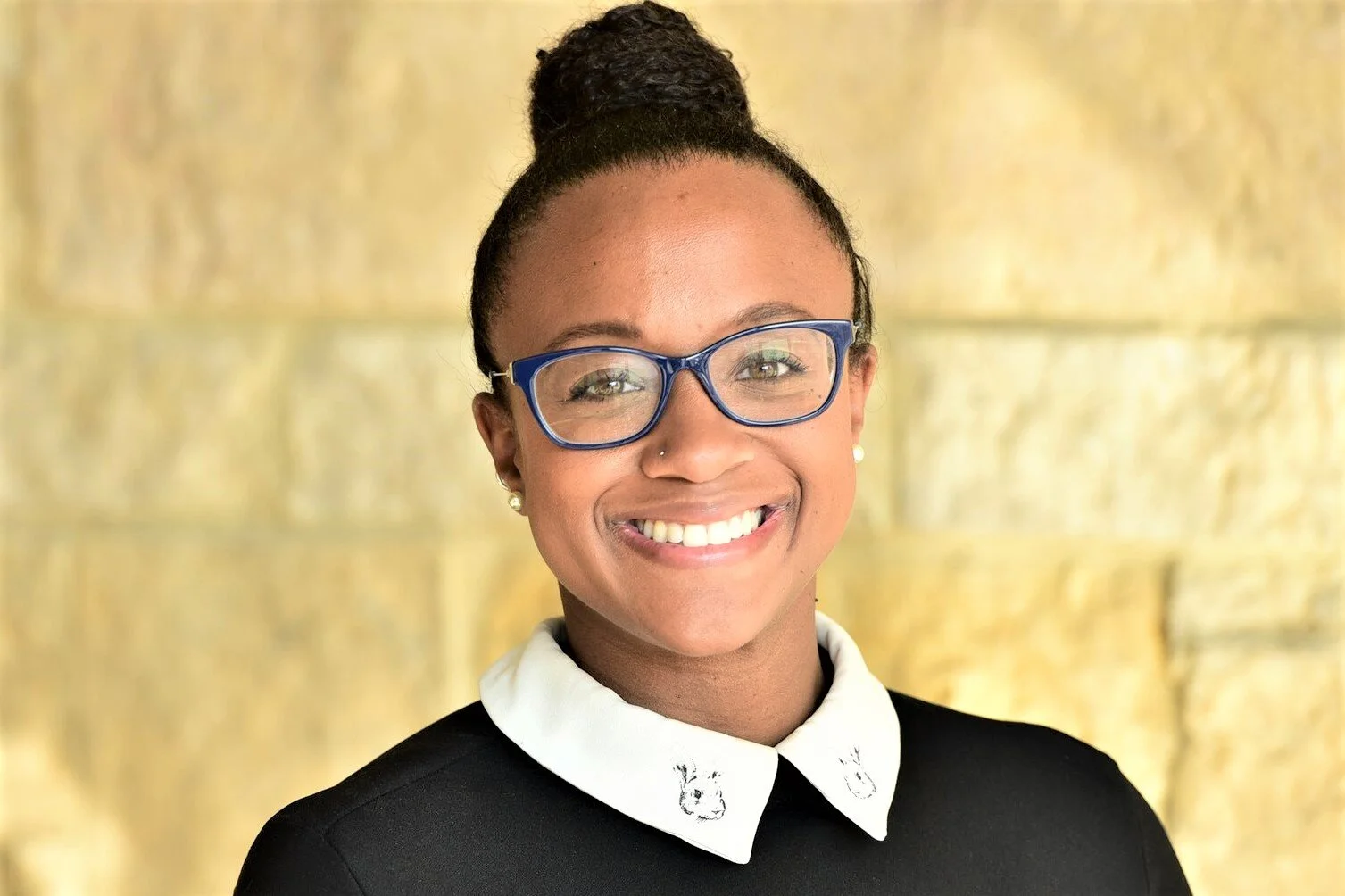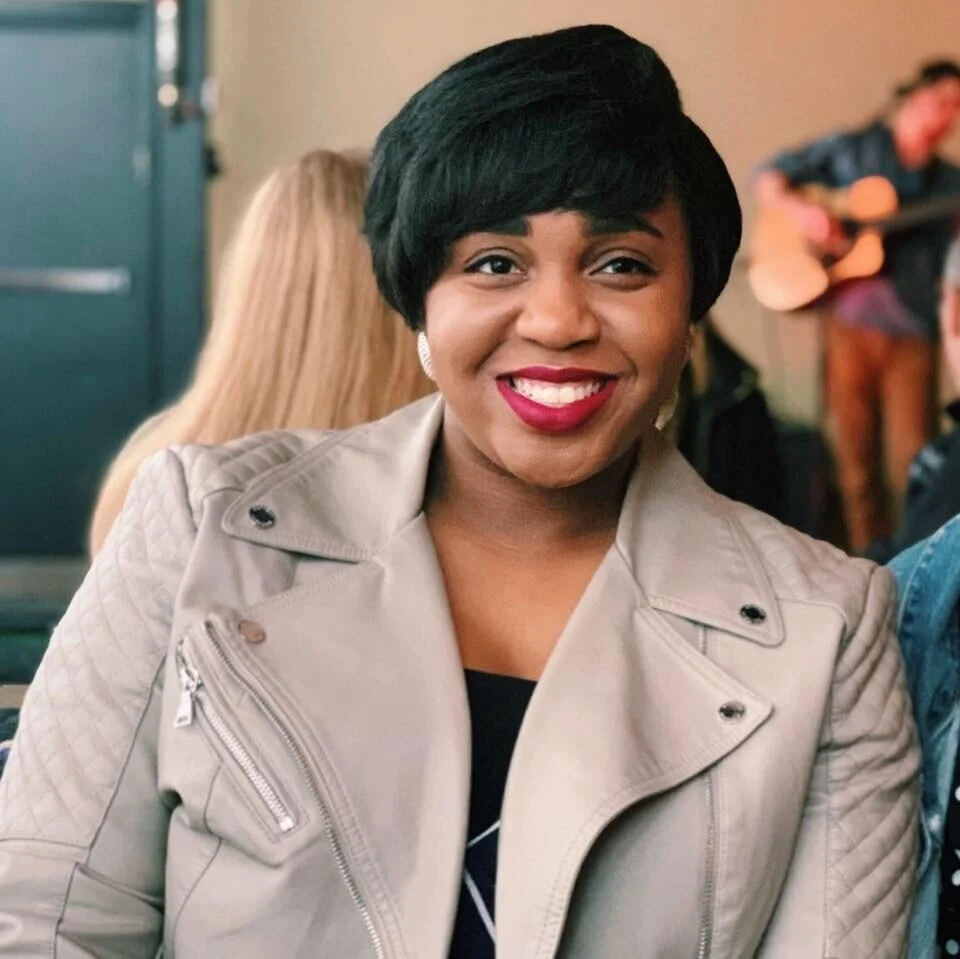Alana Cheeks-Lomax, D&I Tech Executive
Hi, Alana! I’m so glad you’re sitting down with me. Can you share what you do right now?
Right now, my job is senior manager of global diversity and inclusion at Microsoft. In terms of my role, I’m responsible for managing Microsoft’s diversity and inclusion data reporting strategy including the development of measurements and analysis of diversity data to support Microsoft’s global D&I strategy for organizational impact.
Are there any pivotal steps or especially meaningful experiences that led you to this work?
I think it’s important to recognize that we are the sum of our experiences. I think all of my experiences have led me to this point. In college, I wanted to be a doctor, and decided not to go that route. I was still interested in healthcare though, but not as a provider, and so I was thinking about how I could still make an impact in that space. I decided to go to graduate school for healthcare policy, and when I graduated, I ended up at Deloitte.
At Deloitte, I had the opportunity to do a lot of strategy with healthcare clients and healthcare equity. I was thinking about issues like how care is delivered, and in terms of equity, whether the right conversations were being had to ensure all patients receive the same standard of care. Even then, I knew I wanted to continue doing equity work. I started carving out side projects where I could have a voice as a thought leader in D&I. I knew that when I left Deloitte, I wanted my next step to be working in D&I in tech. So when this role at Microsoft came up, it was the perfect culmination of a bunch of experiences.
I will also say that in between college and graduate school, I did AmeriCorps. I think that was really important because I was seeing how policy influences people, and that position helped shape how I think about equity work. I bring that mindset to a corporate space where a lot of people haven’t had the on-the-ground experiences that I had, that really takes policy from being a one-dimensional discussion. Ultimately, Microsoft was looking for someone who had these multidimensional experiences -- public, private, direct service, policy -- all rolled into one. So it worked out.
That’s awesome. So, I’m kind of cheating because you and I are friends and I know you started a kind of affinity group while at Deloitte. Can you share more about forming that group?
Yes, actually, it was called Communities of Color from Coast-to-Coast, or C2C. It’s actually a perfect group to discuss for Black Women Work because C2C was designed to create spaces for Black women, particularly safe spaces. Whether you’re in government, public sector, private sector, academia -- there’s typically not a safe place to learn and make mistakes. Making mistakes in front of mixed company can set us back in terms of promotions, higher pay, getting placed on better projects.
When my former colleague Jessica Lynch and I brought the idea to leadership, they didn’t think it was necessary. It was like, “Oh, this is cute.” (laughs) Once we put the word out that we were having events, it was like the floodgates opened. Really quickly, we had hundreds of people join our listserv and wanting to be part of the conversation. We realized that people all over the company were having the same conversation over and over, and no matter how long they had been at the firm. I’m happy we could create that space at Deloitte, also, because it provided a foundation for people to just be more comfortable at the firm. Now they had a place to go. So many times, you’re the only one and there’s not a lot of leadership that looks like you. We want people to create conditions where people are allowed to climb the ladder and succeed.
What about you as a person makes you especially adept at what you do?
My lived experience as a Black woman. You know, just because I’m a Black woman, I’m not an expert in everything related to D&I. But I think I have an ability to learn and understand more because of where I’m coming from. I have an appreciation for this work, and ultimately that mindset of inclusion is what makes us better and stronger. Of course, there are plenty of business cases out there demonstrating what D&I means for teams and companies. But I have a real, vested interest in this because it’s a part of our everyday lives as Black people, and so D&I needs to be in every aspect of what we do.
Are there influential people you’ve looked to for inspiration?
There are two people: my mom and my grandmother. My grandmother doesn’t have a high school education. She grew up in New Haven, Connecticut, and came to New York because she wanted to make a better life for herself and her family. She had two kids, and had divorced my grandfather which was super unheard of back in the day. I’m inspired when I look at her tenacity and drive to do and to be for her family, and what she instilled in my mom. My mom wanted to go to law school and do all these big things. She just felt capable of being this powerful Black woman. They’ve been a shoulder to cry on, rely on, they’re always there for me. I want to make them proud, and do the same for future generations.
Can you share what you’ve learned about connecting and networking across your peers?
I actually didn’t even realize the value of networking until I got to Deloitte. In college, you’d hear certain professors talk about it, but I only realized the value of networking as social capital later when I started working. I realized my peers could share valuable information, too, and could help me out. My role at Microsoft is a perfect example because a friend of mine I’ve had for years reached out and said “This is your job.” He knew I had been looking for a new role, we’d talked about what I wanted to do, and he said “I have the perfect job for you.” And that’s how I got to Microsoft.
It’s great to have a group to learn and grow with -- people you can move through life with. When I think of our group chat, we can connect so quickly if we need something. We can say “I need help connecting with this person” or “I need help with this specific thing at work” and it’s done. Peer networking is so important and useful. It’s also important to network downward as part of building your network.
Can you share more on networking downward?
Sure. You should expand your network naturally. The more people you have in your network, the better. But I think sometimes people assume someone who is younger or who has less experience isn’t valuable to connect with. A lot of the folks I connect with such as my mentees, for example, have been able to connect me with people in their networks that wouldn’t typically be in mine. They also have a much fresher perspective. I’m in the thick of life, and they’re right out of school. They’re bound to have a different view, and that could be useful. I’ll share a practical example, too. At Deloitte, as a manager you would have to staff your projects. Being connected to analysts you can tap to build your project can mean the difference between whether you’re able to have a really strong team or not.
Can you identify a time where you felt that you had really stepped into your own? A career-defining moment, maybe?
Oh, that's a good question! I feel like I’ve had multiple moments like that. Honestly, at every stage you feel like, “Oh, this is it!” (laughs) I do think that Coast-2-Coast was a big moment for me, when I took a stance with my colleagues to really tell leadership what we needed and what we wanted from them, from the firm. I felt that I was really taking the reins.
How did you go about doing that? That’s so bold!
I emailed the CEO of Deloitte about Black Lives Matter, as a representative of Coast-2-Coast. I figured if I got fired, then I would know that this just wasn’t the company for me. I think I’ve always been an activist but around the time where it was back-to-back -- Alton Sterling, Philando Castile, the Pulse shootings. You remember that crazy few months? And so leadership had sent an email to staff saying “Pray for Pulse” and “Pray for Orlando.” They offered counselors. Nothing came out about the shootings. That was frustrating. And it was crazy, because after those few days when so many Black people were being killed by police one after the other, every Black person I saw at work was in a daze. So my message to leadership was that you can’t triage what tragedies you will and won’t recognize, because it affects us. I just had a moment where I really felt that if they couldn't respect the request, then I needed to leave. And they responded with an apology and a promise to review protocol. I took that as a win. They heard us.
What are you excited about for your future?
In the “work” bucket, I’m excited about the new space I’m in. I’m excited for a new opportunity to make an impact and drive change. The universe, God -- they work in so many ways to put you where you need to be. I need to be here. I’m looking forward to trying a new city, Seattle, where I’ll be moving soon. Making new friends and getting out of my comfort zone. It’s easy to be comfortable but I know that when I’m uncomfortable, that is where the growth is.
In other parts of my life, I’m excited about exploring other opportunities and new spaces. The things I think about for my future have no alignment with what I’m doing now. (laughs) I want to have a TV show, write a book -- so many things. Sometimes I wonder how I’ll get there, but I know if it’s meant for me, it will happen.
Please share this post with a friend, and follow us at @BlackWomenWorkIG!


